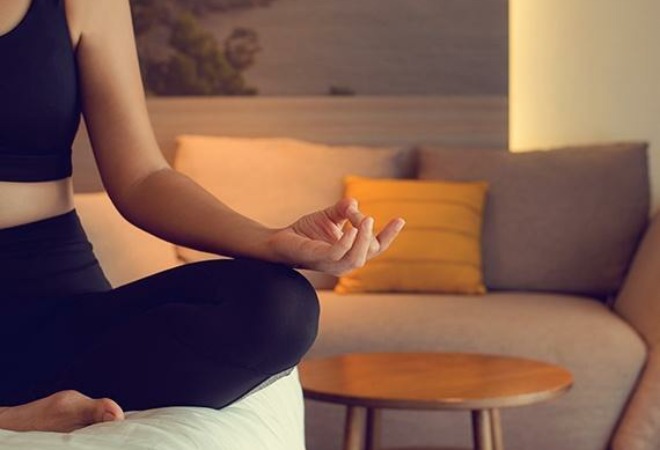This year we celebrated World Sleep Day on 14th March 2025 with the theme: ‘Make Sleep Health a Priority’. Quality sleep is essential for both physical and mental well-being. Despite its importance, many of us struggle to prioritise rest, whether due to busy schedules, stress, or habits like ‘bedtime revenge procrastination.’ To help you take control of your sleep health, we spoke with Tracey Gee, a health and sleep psychologist specialising in mind-body medicine. She shares valuable insights and practical tips on how to improve your sleep quality, build better routines, and ultimately wake up feeling more refreshed.
Make sleep health a priority
Getting quality sleep
Sleep is essential for our survival, just like food and water. Yet, it often takes a backseat when we’re prioritising our self-care.
Have you heard of ‘bedtime revenge procrastination’? This is when people sacrifice sleep to gain some personal time, especially those with demanding jobs or responsibilities that leave little room for themselves during the day. Examples include scrolling through screens late at night, doing tasks that feel necessary like house chores, or ‘bedtime negotiation’ bargaining with yourself to stay up a little longer for some “me time.”
It’s easy to overlook sleep, often without realising it, but making sleep a priority is crucial for your Mind-Body Well-being. Research shows that sleep and health (psychological and physical) affect each other in both directions — sleep isn’t just a side effect of other issues; it plays a key role. Quality sleep has been linked to helping prevent, reduce the risk and relieve symptoms of stress, anxiety, depression, heart disease, diabetes, weight gain, chronic pain, cancer and concussions. It also helps the body respond better to medical treatments. Taking care of your sleep is one of the best things you can do for your overall health and well-being.
Sleep health is often associated with the number of hours slept (quantity) and how easy it is to sleep plus how rested you feel afterwards (quality). However, quantity and quality don’t always align – quality is more important. For example, “I slept for 8 hours (perceived quantity needed), but I feel tired and not ready for the day ahead (poor quality)”.
To understand the impact of sleep health on your Mind-Body Well-being, let’s consider the effects of poor-quality sleep. On the Mind side, you may be more emotionally reactive and easily stressed or irritable, you start interpreting situations more negatively (e.g. catastrophising), reduced motivation, and brain fog with difficulty concentrating. On the Body side, you may have slower reaction times, clumsiness, poor posture, feel excessively tired with difficulty staying awake, and general physical discomfort.
Consider the times you’ve had a stressful day and heard advice to “sleep on it and you’ll feel better in the morning”. Getting quality sleep allows you to process the day’s challenges then restores, recalibrates, improves emotional regulation and bodily resilience for your overall approach to stress.
Research-based strategies
Sleep routine
Begin your sleep routine as soon as you wake up, not just at bedtime. Sleep regulation involves your circadian rhythms (body’s sleep-wake clock), different hormones; cortisol (stress and wakefulness hormone) and melatonin (sleep hormone), and sleep pressure.
Consistent sleep schedule: Going to bed and waking up at the same time every day, even weekends, helps regulate your circadian rhythms.
Morning sunlight: Try exposing yourself to natural light to lower melatonin signaling your body that it’s time to be awake and alert – feeling less sleepy.
Manage stress: Additional daily stress can cause spikes in cortisol levels, to help manage this try to reduce your sense of urgency and practice regular mindful breathing.
Healthy lifestyle choices: Having balanced and regular nutrition, physical activity, and hydration helps regulate stages of sleep.
Manage disruptors: Be aware of the effects of caffeine, nicotine and alcohol as they have different limits and sensitivities to them that can interfere with your sleep.
Napping: Be aware of for how long and when as this can influence sleep pressure and trying to sleep later.
Wind-down routine: 1 -2 hours before bed start dimming lights to help melatonin rise, slow down and focus on relaxing activities.
Bedtime routine: 20 -30 mins before bed start setting up your sleep environment.
Special consideration: Pay attention to the amount of time in bed and staying awake while trying to sleep as it can cause problematic issues with sleep pressure and conditioned sleep associations.
Research-based strategies
Sleep environment
Optimising your sleep environment to feel safe and comfortable delivers big returns.
Temperature and air control: The heat from having a hot shower or bath 15-20 minutes before bed can help your muscles relax and the drop in body temperature signals your body it’s time to rest. Additionally, keeping the room temperature between 16-19°C (for healthy adults) and well-ventilated with fresh air can help with more comfortable and restorative sleep.
Light control: Reducing light, especially blue light, and creating a dark environment helps your natural melatonin rise and signals your body that it’s time to rest and sleep. A sleep mask or blackout curtains can help with this.
Noise management: Creating a peaceful environment signal there’s no need to be alert or awake. The use of white noise or ear plugs can help with this.
Comfortable quality bedding: Having supportive bedding such as a quality mattress and pillow/s can help with spinal health and sleep posture.
Pressure stimulation: Using a weighted blanket, that’s body weight specific, provides pressure that signals safety to your body.
Research-based strategies
Sleep breathing
Breathing slowly activates the ‘off switch’ to your stress response, helping move your body from wakefulness to rest and recovery for sleep. While there are various breathing techniques, the key is to feel your stomach move with each breath and ensure your breathing is slow and steady.
Research-based strategies
Sleep mindset
Having a relaxed mindset toward sleep can help prevent cortisol increasing that should be low when sleeping. Unintended sleep-effort results from overthinking or becoming frustrated with trying to fall or be asleep. The self-talk language you use matters.
Unhelpful sleep-effort mindset (sense of stress and wakefulness)
“I must get 8 hours, or I’ll be exhausted”
“I need to try harder to sleep or I’ll suffer tomorrow”
Helpful sleep mindset (relaxed mindset)
“Sleep will come, my body knows how to sleep”
“Resting is still beneficial, even if I’m not asleep”
There is no one-size-fits-all solution to your sleep health. Your sleep has many parts to it that may require specific attention to improve knowledge and combining tailored strategies. There are also variations for health conditions, irregular working hours and age ranges.
Make sleep health a priority
About Tracey Gee at Healthworkz Psychology
Tracey is a NZ trained health psychologist who specialises in mind-body medicine, focusing on the influence and impact psychological and physical health have on each other. Since 2001, she has worked across both private and public settings including her own practice, corporate health, clinics and hospitals.
Tracey’s practice covers a broad range of health and well-being issues, she specialised in sleep due to its significant role in overall well-being and its wide-ranging benefits. She works exclusively with adults and based in Auckland. She is trained in Cognitive Behavioural Therapy for Insomnia (CBT-I) and Mindfulness-Based Therapy for Insomnia (MBT-I), offering evidence-based interventions for sleep-related issues and conditions. In addition, she integrates approaches such as Acceptance and Commitment Therapy (ACT) to provide comprehensive tailored treatment options to meet individual’s unique needs.
For more information, visit www.healthworkz.co.nz




